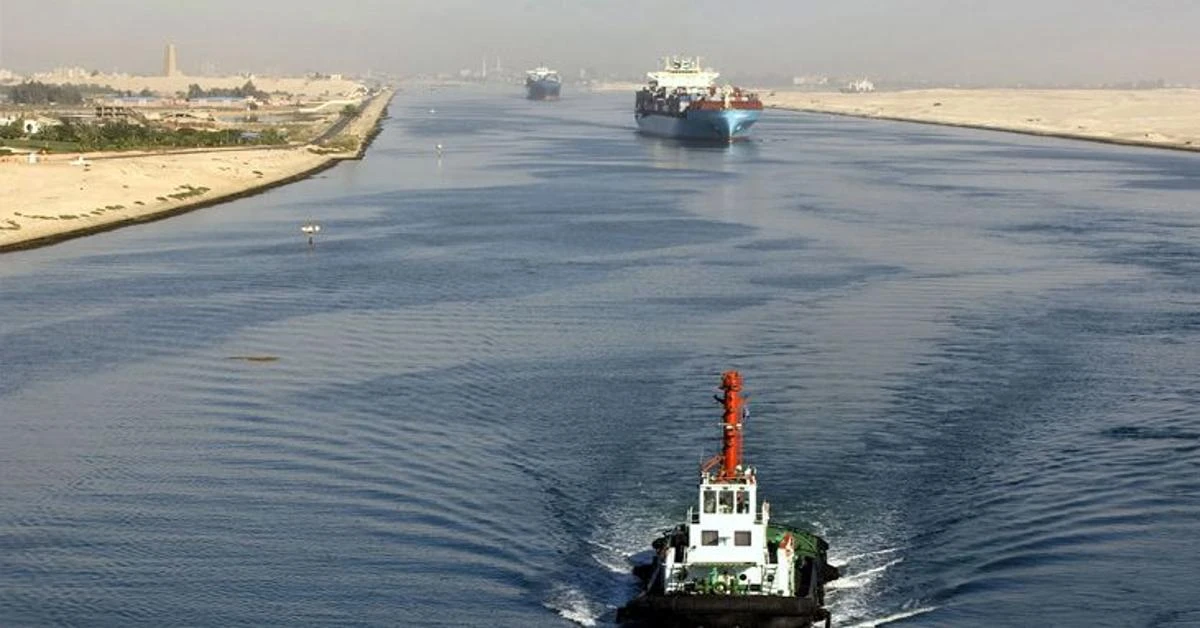Suez Canal traffic plunges 40% amid Houthi rebel attacks

Suez Canal traffic has dropped 42% since Houthi attacks, U.N. says
The volume of commercial traffic through Egypt’s Suez Canal has declined by more than 40% in the recent two months, the United Nations reported, attributing the decline to assaults by Yemen’s Houthi rebels. This significant decrease is raising alarms about the stability of global trade networks.
The Houthi rebels, supported by Iran, have declared their assaults are aimed at vessels they believe are associated with Israel, targeting both commercial and military ships in solidarity with the Palestinians in Gaza. These attacks have prompted numerous cargo carriers to seek alternative, albeit lengthier and costlier, maritime routes to circumvent the conflict zone.
Jan Hoffman, the head of the U.N. Conference on Trade and Development (UNCTAD), voiced deep concerns about the broader implications of these disruptions. “We are very concerned that the attacks on Red Sea shipping are adding tensions to global trade, exacerbating (existing) trade disruptions due to geopolitics and climate change,” Hoffman stated in a press briefing on Thursday.
UNCTAD’s data reveals a stark 42% reduction in traffic through the Suez Canal over the past two months, as ships increasingly opt for the alternative route around South Africa’s Cape of Good Hope, avoiding the Red Sea.
The Suez Canal, a crucial waterway connecting the Mediterranean Sea with the Red Sea, is pivotal for international trade, with over 80% of global goods trade volume transported by sea. Hoffman highlighted the critical role of maritime transport in global commerce, describing it as “really the lifeline of global trade.”
This downturn in Suez Canal traffic underscores the vulnerability of international trade to regional conflicts and stresses the urgent need for stability and secure maritime routes to maintain the global economic order.
The number of weekly container ship transits through the Suez has fallen by 67% year-on-year, according to the UNCTAD, as more than 20% of the world’s container trade goes through the Suez Canal.
“Given that it’s above all the larger container ships that divert from the Suez Canal, the decline in container carrying capacity is even bigger,” Hoffman said.
Tanker traffic has dropped 18%, the transit of bulk cargo ships carrying grain and coal is down 6% and gas transport is at a standstill.
Overall, between 12% and 15% of world trade – 20,000 ships per year – passes through the Red Sea, providing a link between Europe and Asia.
The situation is made even more dire as other global maritime trade routes also face disruption, with transit through the Black Sea severely restricted since Russia’s invasion of Ukraine two years ago, sending global food prices soaring.
Drought in Central U.S. has led to a drop in water levels in the Panama Canal, significantly reducing the amount of traffic able to cross the essential route.
“Prolonged disruptions in major trade routes would disrupt global supply chains, leading to delayed deliveries of goods, increased costs and potential inflation,” the UNCTAD warned.
Source: Turkiye Today with AFP
#haber#



